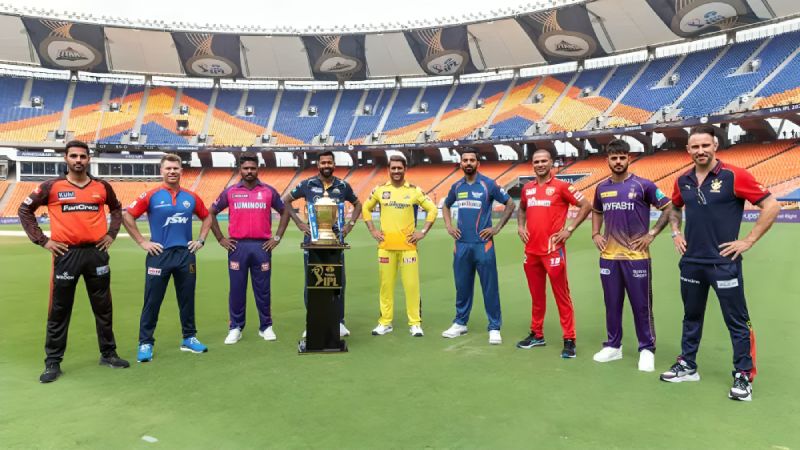

These 5 Talented Bowlers Could Steal the Spotlight in UP T20 2024
The UP T20 League 2024 is set to be an exciting spectacle, featuring exceptional cricketing talent from Uttar Pradesh. Among the participants, five bowlers are


The Indian Premier League (IPL) has revolutionized cricket with its financial might and glitz, leading to substantial changes across the cricketing world. Recent developments, such as the GMR group’s bid for Hampshire County Cricket Club and the anticipated acquisition of shares in The Hundred, signal a shift that could redefine the landscape of the sport. While the IPL’s financial success is undeniable, it raises critical questions about its impact on the future of cricket.
The IPL’s financial success has brought an influx of money into the game, a lifeline for many struggling teams and domestic leagues. The IPL’s ability to attract top talent and generate substantial revenue is a testament to its influence.PL owners have become the cricketing equivalent of those pesky vines that spread everywhere, holding stakes in T20 leagues from the UAE to the USA, South Africa, and the Caribbean. This widespread ownership offers a lucrative opportunity for cricket’s expansion and growth.
However, this financial prowess also poses potential risks. The presence of wealthy conglomerates in cricket could lead to a concentration of power that may overshadow traditional cricketing structures. Kerry Packer’s cautionary advice from the mid-1990s—”Don’t let a [media] company run your sport”—resonates now more than ever. The influence of these corporate giants on the game could lead to conflicts of interest and a shift in the balance of power.
As IPL owners secure long-term contracts with top players, there is a risk that these players might prioritize their IPL commitments over their national teams. This shift could undermine the traditional structures of international cricket and create tension between national boards and franchise owners. The very nature of T20 leagues, with their financial incentives, might lead players to become beholden to franchise owners rather than their respective cricket boards.
The impact of this shift extends beyond just player allegiance. Cricket administrators, who are already grappling with the complexities of managing the game, might face additional challenges in maintaining a balance between franchise interests and international cricket. This dynamic raises concerns about whether the administrative decisions will favor financial gains over the sport’s traditional values and structures.
One of the most pressing concerns is the future of long-form cricket. The IPL’s dominance might overshadow Test and first-class cricket, potentially leading to a scenario where young players opt for T20 leagues due to financial incentives. This trend could diminish the opportunities for players to experience and excel in traditional formats, which are essential for developing well-rounded cricketers.
Arthur Morris’s reflection on his cricketing career, where he described it as a period of “poverty,” contrasts sharply with the current scenario where players are increasingly focused on financial rewards. The choice to prioritize T20 cricket is understandable given the lucrative offers, but it is crucial that players still have the option to engage in long-form cricket if they desire.
Cricket’s future needs a balanced approach that integrates the financial success of leagues like the IPL with the preservation of traditional formats. The sport’s administrators must collaborate with former players and current stakeholders to develop a comprehensive blueprint that ensures financial stability while maintaining the essence of the game.
For more, visit JeetBuzz News to read our quality Cricket Blog updates. Explore if you want to reminisce and enjoy all of your favourite cricket players and nostalgic match moments. To ensure that you never miss out, keep updated and join in the fun!


The UP T20 League 2024 is set to be an exciting spectacle, featuring exceptional cricketing talent from Uttar Pradesh. Among the participants, five bowlers are


As England and Sri Lanka prepare to face off in the second Test at Lord’s, the series is finely poised. England secured a convincing win


The West Indies have once again proven their mettle in the T20 format, clinching yet another series victory against South Africa, making it their third